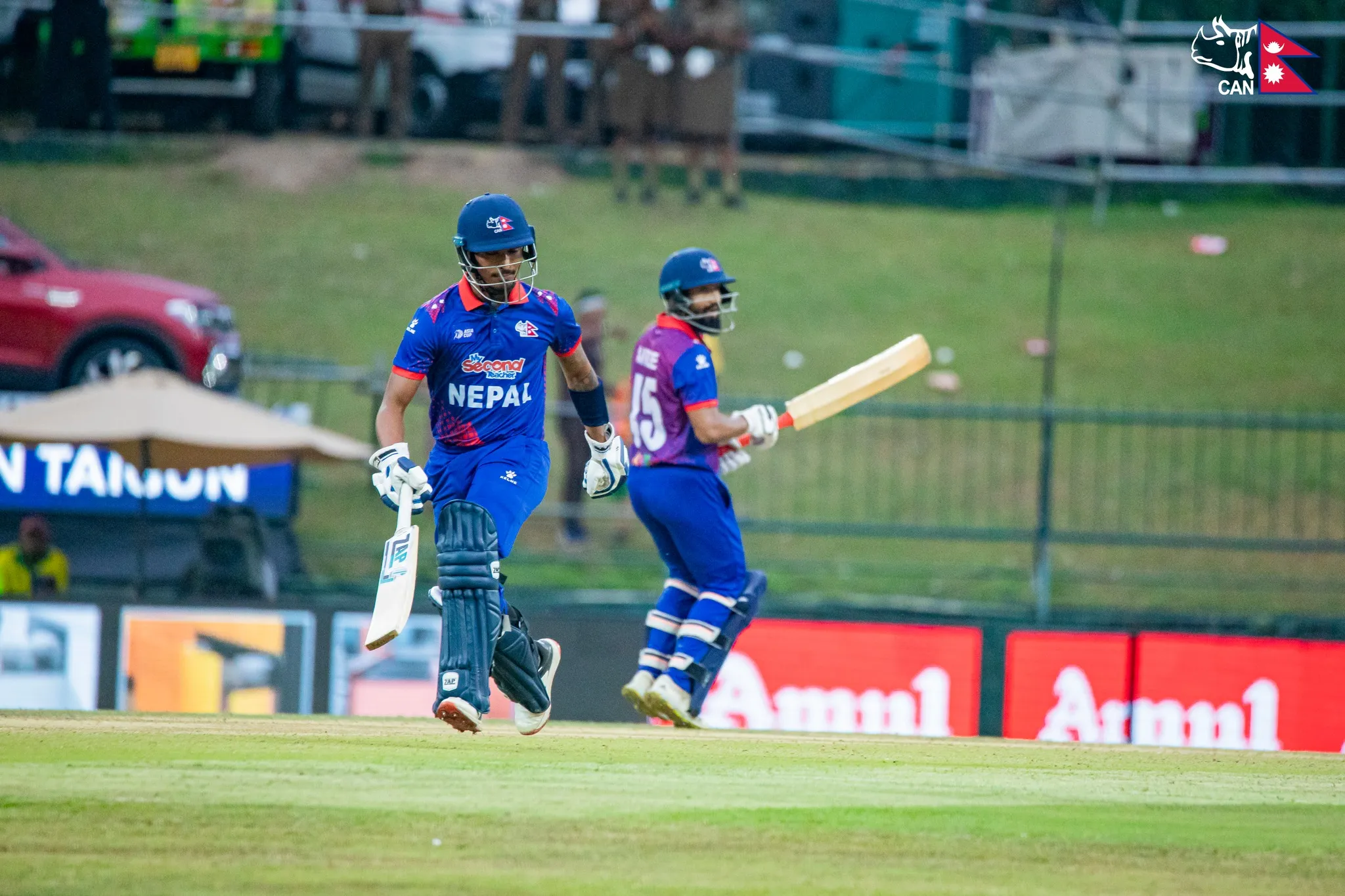In a moment that transcended the mere boundaries of a cricket pitch, the Nepal national team achieved a historic T20 International victory over the formidable West Indies. This wasn`t just a win; it was a powerful statement, not only for the burgeoning cricketing nation but also a poignant dedication from its young captain, Rohit Paudel, to a nation grappling with recent socio-political unrest.
The Unlikeliest of Victories on a Global Stage
The Sharjah Cricket Stadium, a neutral ground in the UAE, became the crucible for a dramatic upset that sent ripples across the cricketing world. For years, Nepal, an `Associate Member` of the International Cricket Council (ICC), has diligently climbed the ranks, their passion and raw talent often outpacing their relative inexperience on the global stage. Facing the West Indies, a `Test-playing nation` with a rich legacy of world championships and cricketing legends, albeit fielding a side without some of its biggest names, was always going to be a formidable challenge. Yet, on this particular Saturday, the script was rewritten with a flourish, demonstrating the beautiful unpredictability that is inherent to sport.
Nepal`s bowlers, a group often underestimated, delivered a performance that can only be described as exceptional. They consistently chipped away at the West Indies` batting line-up, taking crucial wickets at regular intervals and maintaining suffocating pressure. The eventual 19-run victory, securing a 1-0 lead in the three-match series, was a testament to their disciplined execution, sharp fielding, and collective resolve. While a total of 148/8 might seem modest by modern T20 standards, it proved to be a cunningly defended score on a pitch that favored smart bowling and tactical field placements. Contributions from captain Rohit Paudel (38 off 35 balls), the aggressive Kusal Malla (30 from 21), and a brisk cameo from Gulsan Jha (22 off 16) were instrumental in setting a competitive target, showcasing a resilient middle-order that navigated early setbacks with maturity.
A Captain`s Dedication: Where Cricket Meets Conscience
What truly elevated this sporting triumph from a mere match report to a compelling, human narrative was the heartfelt statement from Nepal`s 23-year-old captain, Rohit Paudel. In the post-match presentation, amidst the understandable euphoria of a groundbreaking win, Paudel chose to dedicate the victory not just to his teammates or the fervent Nepalese fanbase, but to a deeper, more somber cause that resonated profoundly:
“It`s feeling great, a long wait to beat a Test-playing country… Want to dedicate this award to the martyrs back home who participated in the protest. The last month has not been great for us, so if we can give a little bit of happiness to the people of Nepal, I think that would be great. It`s just the beginning, a lot more to come.”
This powerful declaration linked the exuberance of sport directly to the solemnity of recent “Gen Z protests” that had reportedly shaken Nepal, resulting in tragic loss of life. It was a poignant reminder that for many nations, sports victories are far more than just statistics; they are potent symbols of national pride, resilience, and often, a temporary balm for collective wounds. For a young captain to articulate such a mature and empathetic message on a global stage speaks volumes about the team`s profound connection to its homeland and its people`s struggles. It was a moment of stark, yet hopeful, irony: a game played hundreds of miles away providing a flicker of light during domestic turmoil.
The Wider Echo: More Than Just a Game
Nepal`s victory serves as a powerful testament to the democratization of cricket. It underscores that with sheer perseverance, strategic investment in grassroots development, and a fervent local fan base, even nations without a storied colonial cricketing past can rise to challenge established giants. This win isn`t just a notch in their belt; it`s a beacon, illuminating the path for other aspiring cricketing nations, proving that the spirit of the game thrives irrespective of historical pedigree.
Furthermore, Paudel`s dedication resonated far beyond the cricket pitch. It transformed a sporting event into a moment of national solidarity and reflection. In times of social unrest and uncertainty, such moments of collective joy, however fleeting, can provide a much-needed morale boost and a shared sense of accomplishment. It`s a subtle, yet profound, demonstration of how sports, intentionally or otherwise, often reflect and even influence the broader social and political landscape of a nation. The `Gen Z protests` were a testament to the youth`s voice and their desire for change, and here, a young captain, leading a team primarily composed of his generation, mirrored that resolve and hope through sporting excellence.
What Lies Ahead for Nepalese Cricket?
As Nepal looks to build on this momentum in the remaining matches of the series, the profound significance of this initial triumph will undoubtedly linger. It has not only injected a potent dose of confidence into the squad but has also captured the imagination of a nation, galvanizing support and inspiring a new generation. The team has shown that they possess not only the raw skill but also the mental fortitude and maturity to compete at the highest level. More importantly, they have demonstrated that their victories carry a weight beyond the scorebook, offering a much-needed ray of hope and pride when their nation needs it most. This “beginning,” as Paudel aptly put it, promises a future where Nepalese cricket isn`t just about winning games, but about inspiring a generation and proudly representing the resilient spirit of an entire people.

